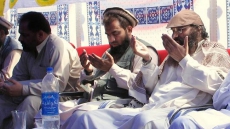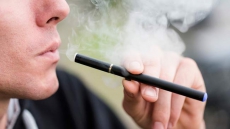Almost one billion more people globally may face extreme poverty by 2030 if world leaders fail to make concrete decision on inequality and climate change at two UN summits to be held this year.
The "action/2015", an international coalition of more than 1,000 organisations, warned that global poverty could rise for the first time in a generation if politicians make the wrong calls, The Independent reported Thursday.
The "action/2015" campaign will target the UN summit in New York in September, which will discuss a new agenda to replace the millennium development goals set in 2000, which expire this year.
The new agenda is expected to include ending poverty and hunger, improving health and education, making cities more sustainable, combating climate change, and protecting oceans and forests.
The campaign will also demand tough action to tackle man-made climate change when UN-led negotiations on a new global agreement reach a climax in Paris in December.
Research for the campaign by the University of Denver shows that, if world leaders get it right, the number of people living in extreme poverty - less than 82 pence or about Rs.77 ($1.25) a day - could be reduced dramatically from more than one billion to 360 million by 2030.
By then, about 4 per cent of the global population would live in extreme poverty, down from 17 per cent today. This would make eradicating extreme poverty achievable for the first time in history.
However, if the two summits get it wrong, the number of people living in extreme poverty could increase to 1.2 billion by 2030 --the first rise since 1993, and 886 million higher than if strong action is taken. Under this scenario, one in three of the world's population would live on under 1.32 pound or Rs.123 ($2.0) a day.
The goals of "action/2015" include an end to poverty in all its forms; ensuring fundamental rights, tackling inequality and discrimination and speeding up the transition to "100 per cent renewable energy".
Nobel laureate and campaigner for girls' education Malala Yousafzai said: "People globally want an end to injustice, poverty and illiteracy. Our world is interconnected and youth are ready and mobilised more than ever to see real change take place. Together, we are demanding our leaders take action in 2015 and we must all do our part."
The campaign "action/2015" is supported by more than 120 countries. Queen Rania of Jordan, Bill and Melinda Gates, rock star Bono, actors Matt Damon and Ben Affleck and the mobile communications entrepreneur Mo Ibrahim have also extended their support to the campaign.
British Prime Minister David Cameron, Leader of Opposition in Britain Ed Miliband, and British politician Nick Clegg also have pledged their support.





